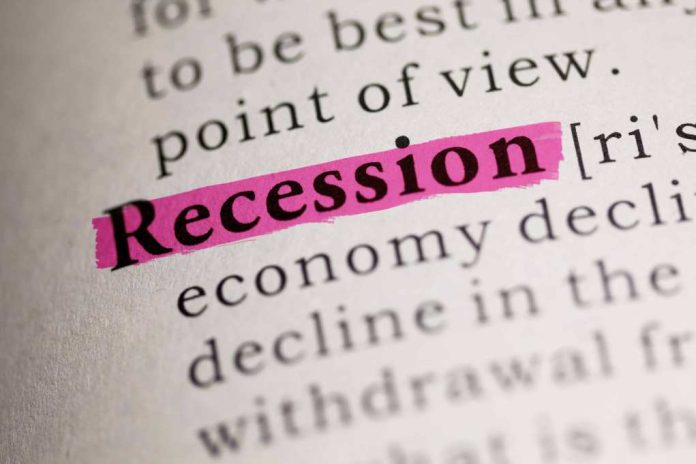The economy can be challenging for some people to understand and follow. However, knowing about the economy is valuable because it may impact how you handle your finances. A recession is one of many stages a country’s economy may go through. A recession is a period when economic activity declines for more than a few months. Generally, during a recession, you may notice the following:
- Increased unemployment rates
- Less spending by consumers
- Less production
- Other examples of decreased economic activity
How to Handle Your Finances During a Recession If You Have a Low-Income
A recession can be stressful, especially if you have low income or limited resources. This is why it is important for you to know how to get through this hard time with the help of some useful tips we prepared for you. Some of the tips include:
- Understand Your Financial Situation
- Create an Emergency Fund
- Change Your Way of Life and Make the Most of What You Have
- Look for an Additional Source of Income
- Keep Your Credit Score in Mind
Understand Your Financial Situation
Making sure you understand your financial situation is one of the most crucial tips on our list. This can help you evaluate your budget and realize what you are up against. It is a straightforward process. First, check how much money you get each month. For example, if you work 40 hours each week for four weeks at $14.25/hour, your gross income will be $2,280. After taxes are deducted, this amount will change, but you should be aware of the fundamentals to get a general understanding.
Once you have determined your income, you should go over your expenses. Making sure you are aware of what you spend money on is necessary here. You will have your regular expenses, such as rent, groceries, and a car loan. However, there can be unnecessary expenses that you make, such as going to the salon, buying makeup, eating out, and other things. This way, you can have a clear picture of your budget and where you need to concentrate your efforts.
Create an Emergency Fund
If you encounter even more difficult situations than what you are now facing, an emergency fund may provide the support you need. It might be challenging to have a reliable source of income during a recession. Having the same amount of bills to pay makes this even harder. For this reason, you need to create an emergency fund to help you financially. You should set aside a fair amount of money for saving when starting. Eventually, you should try to save up enough money for three to six months’ worth of spending. You should make sure that you have a thorough understanding of your finances.
Change Your Way of Life and Make the Most of What You Have
It is crucial to follow your spending plan when handling your finances. When the economy is down and if you have a low income, it is especially critical that you take this action. Sticking to the basics as much as you can is a good approach in such times. Let’s say that after reviewing your budget, you find out that you spend $200 each month on hair dye. Since hair dye is not an essential expense, you can go without it. You can save that money each month by cutting back on your hair treatments. Savings can be used to pay bills or to start an emergency fund.
You should also consider reducing your current spending in addition to deciding which expenses to cancel. You might be able to cut costs on your regular expenses. To help you save money every day, you should keep in mind the following tips:
- Compare insurance quotes to guarantee you are receiving the best deal on your coverage.
- When purchasing groceries, use coupons.
- Choose your gas station carefully.
Look for an Additional Source of Income
In general, looking for more money can help you a lot in this situation, especially if you have a low income. Getting a new job is one way to do that. Fortunately, many jobs offer flexible hours so you can fit them into your schedule. For instance, if you decide to walk dogs, you can do so whenever it is convenient for you. Not only is having some extra money beneficial in the short term, but it can also have many advantages in the long run. Your additional income source may help you in the future by giving you new skills, too.
Keep Your Credit Score in Mind
Your financial stability is significantly affected by your credit score. Lenders evaluate your score to assess your creditworthiness as a borrower. If you make many mistakes, it is quite easy to damage your credit score. When it comes to your credit, you should keep these five things in mind:
- History of payments
- Credit usage ratio
- Credit history
- Different types of credit
- New credit accounts
Although these five factors may affect your score, your history of payments is one of the most crucial ones. Lenders can quickly see how you handle debt repayment with your payment history. During a recession, it could be particularly challenging for someone with a low income to pay their bills. Consequently, you should do everything you can to keep your credit score in good standing. A good credit score will most likely make it easier for you to obtain housing and financing with better terms.
Bottom Line
Living during a recession can be difficult, especially if your income is low. Fortunately, it does not need to be as stressful as it may sound. If the economy is going through a recession, keep in mind the following tips:
- Understand Your Financial Situation
- Create an Emergency Fund
- Change Your Way of Life and Make the Most of What You Have
- Look for an Additional Source of Income
- Keep Your Credit Score in Mind
You just need to take the right steps! Hopefully, you’ll be surprised by how helpful these tips are for managing your financial situation during a recession.














